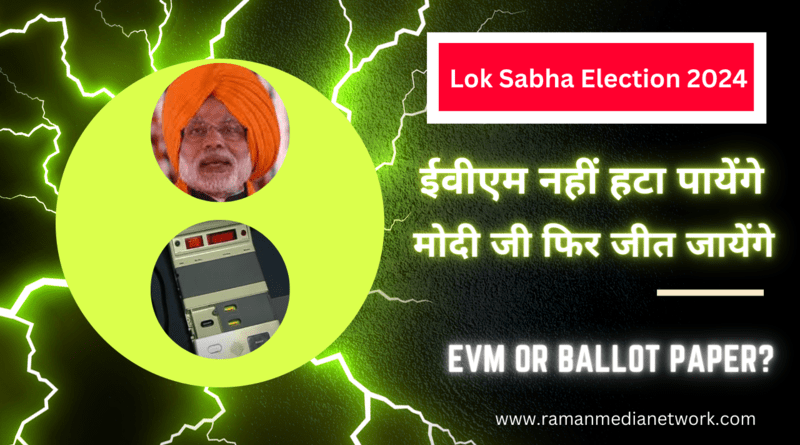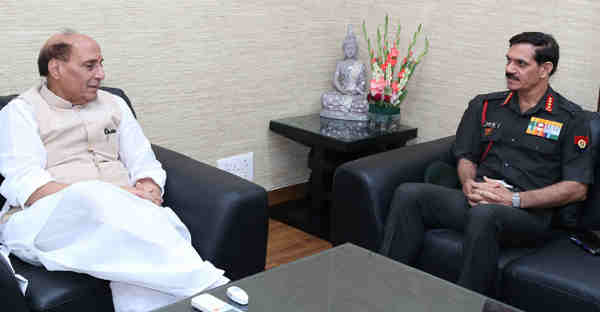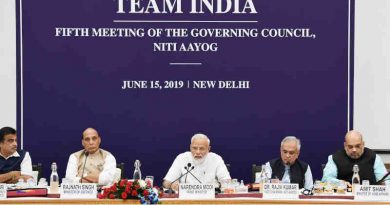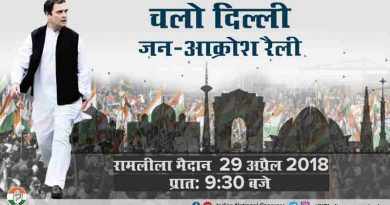Supreme Court of Modi Govt Won’t Stop the Fraudulent Use of EVMs in Elections
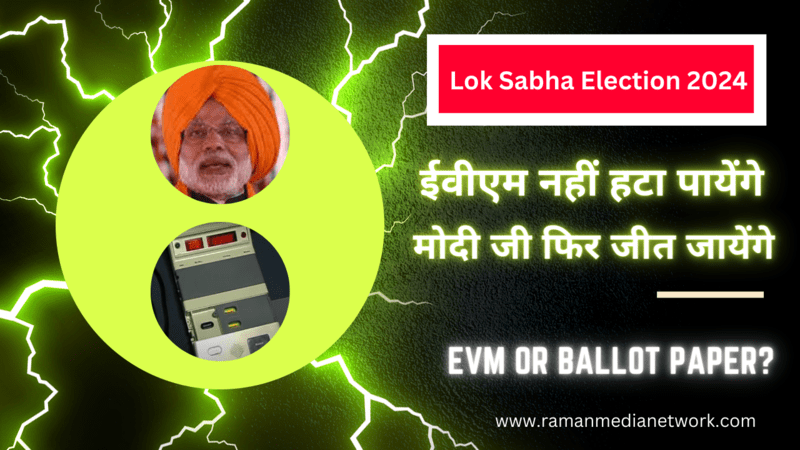
Supreme Court of Modi Govt Won’t Stop the Fraudulent Use of EVMs in Elections
No court judge or government functionary can take any decision that may displease their boss Narendra Modi.
By Rakesh Raman
As expected, the Supreme Court of India rejected the petitions that sought to stop electronic voting machine (EVM) manipulation in Indian elections.
After wasting hours on a futile gossip and loose talk in the courtroom on April 18, a bench of Justices Sanjiv Khanna and Dipankar Datta had reserved the judgment without giving any reason.
However, today (April 26), these judges dismissed the petitions that demanded 100% verification of votes polled on EVMs. Most judges in India are not quite educated to handle cases that require domain expertise.
God only knows the purpose of delaying the decision on the petitions and finally rejecting them arbitrarily, as they contended that every vote cast through EVM is tallied with Voter-Verifiable Paper Audit Trail (VVPAT) slips during elections.
It is being repeatedly seen that no court judge or government functionary can take any decision that may displease their boss Narendra Modi, who is the prime minister (PM) of India. And Modi never wants any investigation into EVMs or the discontinuation of EVMs.
There have been numerous complaints about the misuse of EVMs in Indian elections. It is alleged that the Bharatiya Janata Party (BJP) of PM Modi manipulates EVMs to win certain key state elections and Lok Sabha elections.
However, the Election Commission of India (ECI) and the Supreme Court of India have always arbitrarily ignored the complaints and petitions about EVM manipulation without any investigation.
[ Digital Microsite Explains the EVM Concerns in Indian Elections ]
After repeatedly neglecting the issue of EVM tampering in Indian elections, the Supreme Court had willy-nilly accepted the petitions that sought to streamline the EVM voting.
But as expected, the top court did not stop the misuse of EVMs. As a result, the 2024 Lok Sabha election – which started from April 19 – is being held on EVMs, and Modi and his party BJP will easily win the elections on EVMs.
HOW SUPREME COURT WORKS
When the Supreme Court of India takes some ostentatious decisions to save the democracy or protect citizens’ rights in some insignificant cases, you can safely presume that the court will allow violation of the Constitution in significant cases to help the Modi regime.
In February 2024, for example, a bench led by Chief Justice of India (CJI) DY Chandrachud condemned the conduct of a poll official who had tampered with the ballot papers to help Modi’s BJP win the Chandigarh mayor elections.
Ostensibly, Chandrachud also called the incident a “mockery of democracy” and “murder of democracy”. Since the mayor elections in a small city like Chandigarh are not quite important for the Modi regime, the Supreme Court took the decision cautiously against Modi’s BJP. And with his avoidable comments on democracy, the Chief Justice gave the impression that he cares for constitutional principles.
Similarly, in the recent electoral bonds case the Supreme Court created a false impression that it is pronouncing a judgment against Modi’s BJP which is the largest beneficiary of the illicit funds through electoral bonds.
[ Also Read: Justice Khanwilkar with Dubious Record to Head Anti-Corruption Outfit Lokpal ]
But the Supreme Court is not asking the complicit State Bank of India (SBI) to release the complete data from the beginning of the electoral bonds scheme because that may embarrass the BJP government and some of its corporate partners.
In effect, the Supreme Court decision has no impact on BJP which is allowed to keep thousands of crores of rupees that it received through this illegal route of electoral bonds and nobody in the Modi government or the SBI has been convicted.
कोर्ट ने फटकार लगाई
However, some naive journalists and gullible Indians – without understanding the case and without knowing the Supreme Court’s real intentions – often praise the top court judges, saying that the court censured the accused close to the Modi regime. Or they use the meaningless and oft-repeated Hindi statement: “कोर्ट ने फटकार लगाई” to praise the court judges. But the court’s job is not to deliver loose rhetoric. Rather, the judges are supposed to transparently apply law to decide a case.
Most Indians do not understand the fact that with its theatrical judgments in small cases which do not impact the Modi regime, the court surreptitiously makes room for itself to absolve the Modi government and its officials in serious cases of crime.
[ Also Read: Supreme Court Failure Causes More Corruption in Modi Regime ]
For example, the top court succumbed and dishonestly protected the Modi regime in cases such as PM-CARES Fund case, Rafale corruption case, Article 370 in Kashmir case, Sri Lanka energy project case involving Adani Group, Modi-Adani collusion case, Sahara-Birla payoff case, Predator Drone deal, electronic voting machine (EVM) fraud case, and a number of other cases in which Modi’s party colleagues are allegedly involved.
If you evaluate the judgments of the Supreme Court through an Artificial Intelligence (AI)-based expert system, you will find that almost all the judgments, dismissal of petitions, or delays in decisions are either wrong or biased in favour of the Modi regime. The situation is worse in high courts and lower courts where judges are more corrupt and almost illiterate.
The judges – particularly of the Supreme Court – deliver weekend academic lectures on constitution, democracy, and justice. But they do not practice in courts what they preach in their academic discourse. All that they say is meaningless rhetoric because when they sit in their courts as judges, they leave no stone unturned to crush democracy and violate all norms of the Constitution.
The Supreme Court’s dubious decision in the EVM case is yet another example of complicity where the court is providing impunity to the Modi regime.
By Rakesh Raman, who is a national award-winning journalist and social activist. He is the founder of the humanitarian organization RMN Foundation which is working in diverse areas to help the disadvantaged and distressed people in the society.


